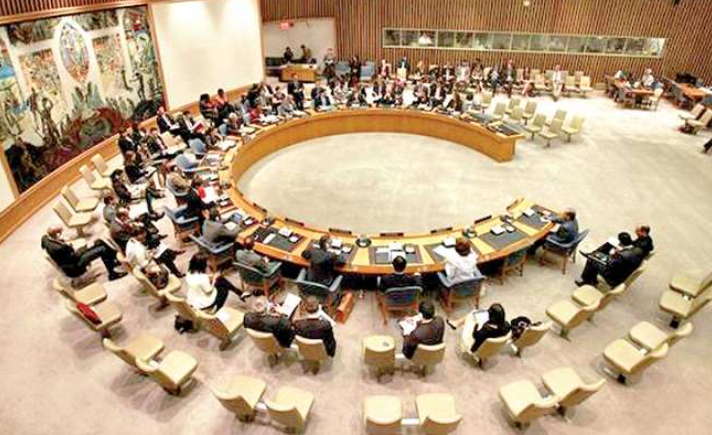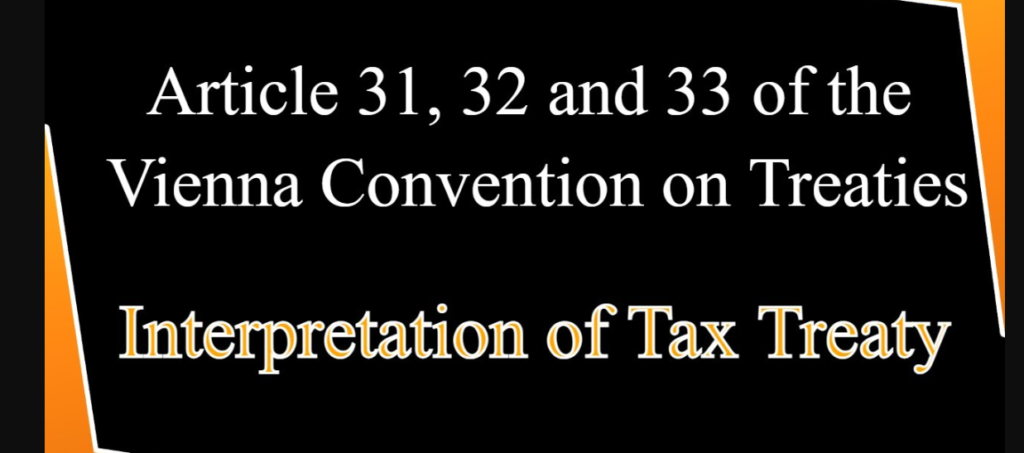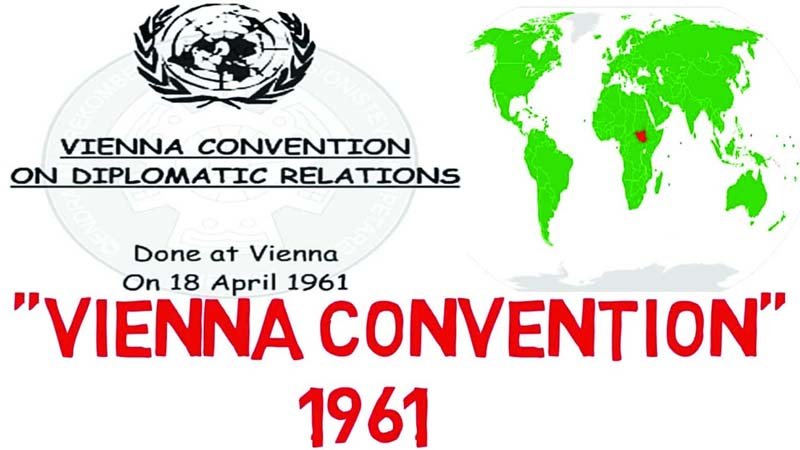In this article, we will delve into the intricacies of the Vienna Convention, shedding light on its origins, significance, and impact on international relations.
Introduction
This Convention, officially known as the Vienna Convention on Diplomatic Relations, is a pivotal international treaty that was adopted in 1961. This convention, often referred to as the “Diplomat’s Bible,” serves as the cornerstone of diplomatic relations between countries worldwide.
Origins of the Vienna Convention

The idea of establishing a comprehensive treaty to regulate diplomatic relations dates back to the early 20th century. However, it wasn’t until the United Nations General Assembly in 1961 that the Vienna Convention on Diplomatic Relations was officially adopted. The primary aim of this convention was to codify and standardize the rules and practices related to diplomacy.
ALSO READ: Russia-Ukraine War Live: Zelenskiy Says UN ‘Ineffective’ In Defending Borders And Should Do More
Key Provisions

Article 9 – Inviolability of the Diplomatic Mission
One of the most fundamental aspects of the this Convention is the principle of the inviolability of diplomatic missions. Article 9 stipulates that the receiving state must ensure the security and protection of the diplomatic mission’s premises and its staff, guaranteeing that they are immune from any form of interference or harassment.
Article 22 – Inviolability of Diplomatic Bags
Article 22 of the convention addresses the issue of diplomatic bags, emphasizing their inviolability. These bags are a crucial tool for diplomats to transport official correspondence and documents. The convention ensures that these bags are exempt from inspection, safeguarding confidential communications between nations.
Article 29 – Diplomatic Agents’ Immunity
Diplomatic agents enjoy immunity from the jurisdiction of the receiving state, as outlined in Article 29. This immunity extends to their personal inviolability, freedom from arrest, and exemption from legal process. It is essential to note that this immunity is not for the individual but for the effective functioning of diplomatic missions.
Significance of the Vienna Convention
The Convention on Diplomatic Relations holds paramount significance in the realm of international relations. It plays a pivotal role in shaping the conduct of diplomats, safeguarding the sanctity of diplomatic missions, and ensuring open channels of communication between nations.
Diplomatic Immunity and International Relations
Diplomatic immunity, a core tenet of the Vienna Convention, is central to the effective conduct of international relations. It fosters an environment where diplomats can engage in frank and open discussions without fear of repercussions in their host country.
Prevention of Diplomatic Disputes
The Vienna Convention provides clear guidelines for diplomatic conduct, reducing the risk of misunderstandings and conflicts between countries. By standardizing the rules of engagement, it helps maintain peaceful relations and prevents diplomatic disputes.
Vienna Convention: A Living Document
The Vienna Convention is not a stagnant document but a living instrument that adapts to the evolving needs of the international community. Over the years, additional protocols and amendments have been added to address emerging challenges and ensure the convention remains relevant.
The Vienna Convention on Consular Relations
In 1963, the Vienna Convention on Consular Relations was adopted to govern the establishment and functioning of consular posts. This convention complements the Vienna Convention on Diplomatic Relations, providing a comprehensive framework for consular relations.
Amendments and Protocols
The Vienna Convention has seen several amendments and additional protocols to address contemporary issues. Notable amendments include those related to the prevention of abuse of diplomatic privileges and the establishment of diplomatic relations.
Conclusion
In conclusion, the Vienna Convention on Diplomatic Relations stands as a cornerstone of international diplomacy. Its provisions ensure that diplomatic relations are conducted with integrity, respect, and transparency. This article has provided a detailed and comprehensive insight into the origins, key provisions, and significance of the Vienna Convention. We hope that this resource aids you in your quest for in-depth knowledge about this vital treaty.
IMAGE SOURCE: Google.com
ALSO READ: Understanding The History Of Abraham Accords




































